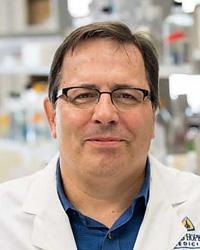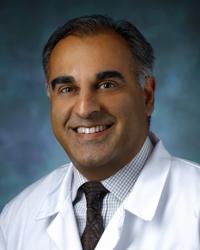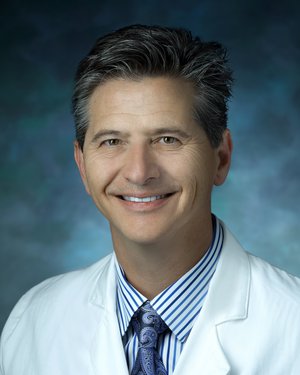Research Lab Results
-
Machine Biointerface Lab
Dr. Fridman's research group invents and develops bioelectronics for Neuroengineering and Medical Instrumentation applications. We develop innovative medical technology and we also conduct the necessary biological studies to understand how the technology could be effective and safe for people. Our lab is currently focused on developing the ""Safe Direct Current Stimulation"" technology, or SDCS. Unlike the currently available commercial neural prosthetic devices, such as cochlear implants, pacemakers, or Parkinson's deep brain stimulators that can only excite neurons, SDCS can excite, inhibit, and even sensitize them to input. This new technology opens a door to a wide range of applications that we are currently exploring along with device development: e.g. peripheral nerve stimulation for suppressing neuropathic pain, vestibular nerve stimulation to correct balance disorders, vagal nerve stimulation to suppress an asthma attack, and a host of other neuroprosthetic applications. Medical Instrumentation MouthLab is a ""tricorder"" device that we invented here in the Machine Biointerface Lab. The device currently obtains all vital signs within 60s: Pulse rate, breathing rate, temperature, blood pressure, blood oxygen saturation, electrocardiogram, and FEV1 (lung function) measurement. Because the device is in the mouth, it has access to saliva and to breath and we are focused now on expanding its capability to obtaining measures of dehydration and biomarkers that could be indicative of a wide range of internal disorders ranging from stress to kidney failure and even lung cancer. -
Mark Levis Laboratory
Our broad research goals are to identify and validate novel molecular therapeutic targets in hematopoietic malignancies. We are interested in the identification and pre-clinical development of novel targeted therapies, and, in particular, the “translational” step of this research by using correlative studies to incorporate these novel therapies into existing treatments. Our research is of particular interest to those who wish to be involved in directly translating the results of laboratory bench work into meaningful benefits for patients. Currently, we are actively involved in the pre-clinical and clinical development of small molecule kinase inhibitors targeting the FLT3 signaling pathway in acute myeloid leukemia. We are interested in 3 compounds in particular- AC220, a FLT3/KIT inhibitor; crenolanib,a selective FLT3 inhibitor with activity against resistant point mutations; and PLX3397, another inhibitor of KIT and FLT3. The active projects in the lab include: 1) Characterization of cytotoxic responses of different hematologic malignancies to FLT3 and KIT kinase inhibition; 2) Examination of the interaction of bone marrow stroma and stroma-derived cytokines on the efficacy of these inhibitors; 3) Examination of the differential effect of FLT3 inhibition versus combined FLT3/KIT inhibition on acute myeloid leukemia and bone marrow progenitor cells; and 4) Correlative laboratory studies using blood and marrow samples from patients treated with FLT3 inhibitors, with the aim of developing predictive models for clinical response.
-
Raymond Koehler Lab
Research in the Raymond Koehler Lab explores cerebrovascular physiology and cerebral ischemic injury caused by stroke and cardiac arrest, using protein analysis, immunohistochemistry and histology. We also study ischemic preconditioning, neonatal hypoxic-ischemic encephalopathy and the mechanisms of abnormal cerebrovascular reactivity after ischemia. We 're examining ways to improve tissue oxygenation and seek to better understand the mechanisms that connect an increase in cerebral blood flow to neuronal activity. -
Obesity Hypertension Clinic: Reversing the Negative Cardiovascular Effects of Weight (ReNEW)
Hypertension in children is a major cause of disease, including early onset heart disease. Up to 25% of children who are overweight or obese have hypertension (high blood pressure), and children with obesity are at greater risk for having other cardiovascular disease risk factors such as high cholesterol and diabetes. The ReNEW Clinic at The Johns Hopkins University provides an innovative multidisciplinary approach to the evaluation and treatment of obesity-related hypertension to help prevent and treat cardiovascular disease. This clinic is designed for children with elevated blood pressure (prehypertension and hypertension) and a BMI at or above the 85th percentile. Many children in this clinic are enrolled in a longitudinal registry to help researchers learn how to better care for children with multiple risk factors for heart disease.Read more about the ReNEW clinic: Childhood Obesity: A Focus on Hypertension
-
Romsai Boonyasai Lab
Research in the Romsai Boonyasai Lab focuses on systems-based approaches for improving health care quality, including reducing harm during care transitions after hospital discharge and improving outcomes related to hypertension and other chronic diseases. We recently have focused on developing and evaluating practice-based tools for improving the accuracy of blood pressure measurement, overcoming clinical inertia to treatment, and engaging patients in self-management of their health. -
Samuel R. Denmeade Laboratory
The main research goals of my laboratory are: (1) to identify and study the biology of novel cancer selective targets whose enzymatic function can be exploited for therapeutic and diagnostic purposes; (2) to develop methods to target novel agents for activiation by these cancer selective targets while avoiding or minimizing systemic toxicity; (3) to develop novel agents for imaging cancer sites at earliest stages. To accomplish these objectives the lab has originally focused on the development of prodrugs or protoxins that are inactive when given systemically via the blood and only become activated by tumor or tissue specific proteases present within sites of tumor. Using this approach, we are developing therapies targeted for activation by the serine proteases prostate-specific antigen (PSA), human glandular kallikrein 2 (hK2) and fibroblast activation protein (FAP) as well as the membrane carboxypeptidase prostate-specific membrane antigen (PSMA). One such approach developed in the lab consists of a potent bacterial protoxin that we have reengineered to be selectively activated by PSA within the Prostate. This PSA-activated toxin is currently being tested clinically as treatment for men with recurrent prostate cancer following radiation therapy. In a related approach, a novel peptide-cytotoxin prodrug candidate that is activated by PSMA has been identified and is this prodrug candidate is now entering early phase clinical development. In addition, we have also identified a series of potent inhibitors of PSA that are now under study as drug targeting and imaging agents to be used in the treatment and detection of prostate cancer.
-
Sean Berenholtz Lab
Work in the Sean Berenholtz Lab focuses on patient safety, ICU care, quality health care and evidence-based medicine. Two notable and successful projects include the National On The Cusp: Stop BSI project, which was implemented in 47 states with the goal of eliminating bloodstream infections, and the Agency for Healthcare Research and Quality (AHRQ)-funded Keystone ICU project, which improved communication and teamwork and reduced hospital-acquired infections in more than 100 ICUs in Michigan. One recent study focused on ventilator-associated pneumonia (VAP), one of the most common type of health care-associated infections in the ICU. Existing VAP prevention intervention bundles vary widely on the interventions, but our research team described a structured approach for developing a new VAP prevention bundle. -
Sean T. Prigge Lab
Current research in the Sean T. Prigge Lab explores the biochemical pathways found in the apicoplast, an essential organelle found in malaria parasites, using a combination of cell biology and genetic, biophysical and biochemical techniques. We are particularly focused on the pathways used for the biosynthesis and modification of fatty acids and associated enzyme cofactors, including pantothenate, lipoic acid, biotin and iron-sulfur clusters. We want to better understand how the cofactors are acquired and used, and whether they are essential for the growth of blood-stage malaria parasites.
-
Sean Agbor-Enoh Lab
Research in the Sean Agbor-Enoh Lab explores topics within the field of pulmonary medicine. Our team also participates in clinical trials that explore new techniques for diagnosing rejection following an organ transplant. One current study is seeking to develop a new blood test that may be used instead of biopsies to diagnose rejection after transplant.
-
Sarbjit Saini Lab
The research in the Sarbjit Saini Laboratory focuses on IgE receptor biology and IgE receptor-mediated activation of blood basophils and mast cells. We have examined the role of IgE receptor expression and activation in allergic airways disease, anaphylaxis and chronic urticaria. Our research has been supported by the NIH, American Lung Association and the AAAAI. Our current research interests have focused mechanisms of diease in allergic asthma, allergic rhinitis and also translational studies in chronic idiopathic urticaria.




